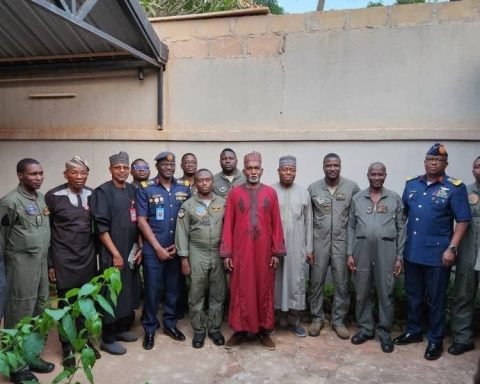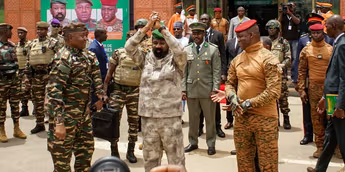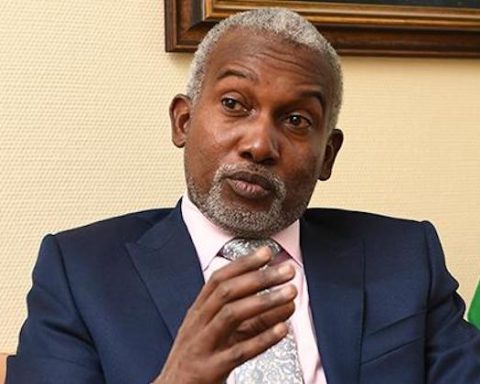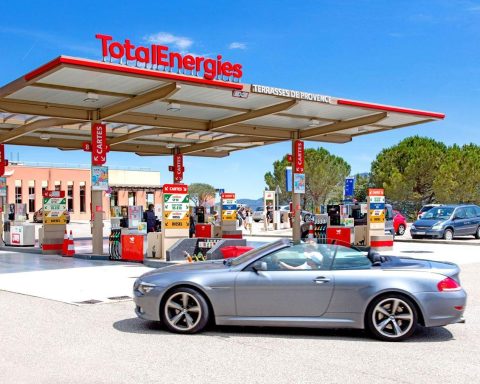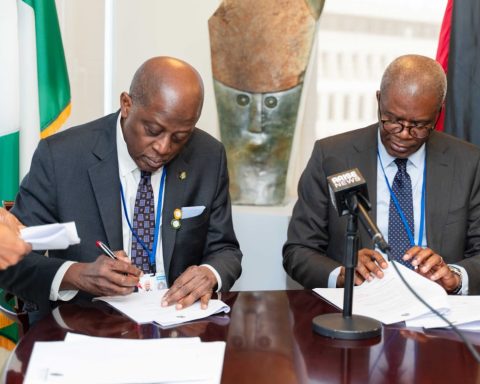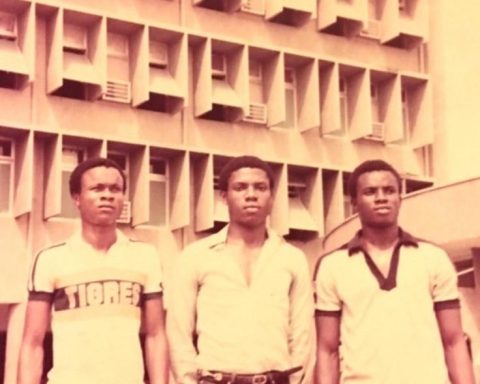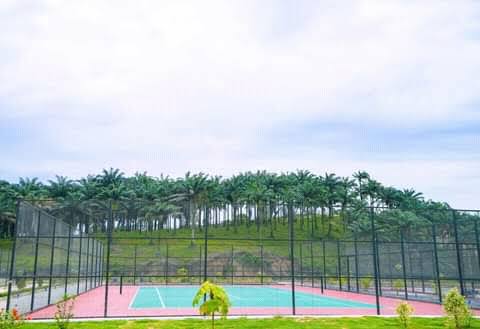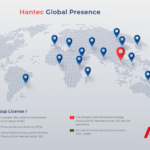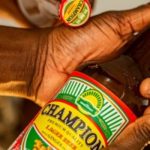Burkina Faso’s President Ibrahim Traoré has survived numerous assassination attempts since taking power in 2022, amidst a complex web of internal betrayal, terrorist threats, and foreign interference.
As the country navigates economic challenges and security concerns, questions arise about the role of external actors, particularly France and the US, in destabilizing the region.
Join our WhatsApp ChannelIs Burkina Faso another case of Western interest derailing a progressive nation, or can Traoré’s government chart a path towards sovereignty and stability?
Many may see the truth behind these assassination attempts as a complex web of internal betrayal, terrorist threats, and political instability.
Others may also assume a significant threat comes from jihadist groups, especially those linked to al-Qaeda and the Islamic State of Iraq and Syria (ISIS), a transnational Salafi-jihadist terrorist organisation that once controlled large territories in Iraq and Syria and continues to inspire and conduct attacks worldwide.
READ ALSO: Burkina Faso Acquires New Plane, Resumes Commercial Operation
But foreign interference further complicates the situation. Evidence suggests that certain foreign actors, notably from France and Ivory Coast, have supported destabilisation efforts to maintain their regional influence and counter Traoré’s push for national sovereignty.
Burkina Faso’s economy now & before 2022
Burkina Faso’s economy experienced significant shifts before and after President Ibrahim Traoré took power in 2022. Before 2022, the country enjoyed relatively strong GDP growth, averaging about 6% annually from 2010 to 2019, driven mainly by services, agriculture, and gold mining. However, persistent insecurity, climate shocks, and a deteriorating security situation began to slow growth, with poverty rising from 41.4% in 2018 to 43.2% in 2021.
In 2022, the economy faced major challenges: GDP growth dropped to 1.8%, inflation surged to 13.8%, and the fiscal deficit widened to 10.7% of GDP. The mining and agricultural sectors were hit hard by insecurity, and the current account deficit worsened.
Since Traoré assumed office, the economy has shown signs of recovery. GDP growth rebounded to 3.6% in 2023 and is projected to reach 4.1% in 2024 and 4.3% in 2025, supported by improvements in agriculture and rising gold prices.
Inflation has sharply decreased, falling to 0.9% in 2023, though it is expected to rise moderately to around 2% in 2024 and 2025. The government has implemented reforms to improve fiscal discipline and economic governance, but high security-related spending and vulnerability to climate and commodity shocks remain ongoing risks.
There is also clear evidence that Burkina Faso’s economy-especially its gold sector-has changed since Ibrahim Traoré became president, although not all trends are positive or straightforward.
Gold Production and Mining Sector:
Gold production, which is central to Burkina Faso’s economy, has faced both setbacks and reforms since 2022. After peaking at 67.1 tonnes in 2021, industrial gold output declined, reaching about 57–60 tonnes in 2023–2024 due to ongoing insecurity and terrorist threats that disrupted operations at several major mines. Despite these challenges, Traoré’s government has taken significant steps to increase state control over the mining sector, including nationalising some industrial mines and formalising artisanal mining.
Creating a national gold reserve and integrating previously informal artisanal mining into the formal economy are notable achievements. Over 11 tonnes of gold were collected in the first quarter of 2025 alone from these efforts. Amid all these efforts by the administration, protesters in France have been criticizing the government.
Why then are there protesters in France?
The protesters showed concern about governance, resource management, and democratic rights.
However, the public, especially Africans, said it is also possible that some opposition voices abroad are amplified or influenced by political actors seeking to destabilise Traoré’s government, given the tense geopolitical climate and recent coup attempts. Especially after accusations by U.S. officials that Traoré’s junta is benefiting from gold revenues while ordinary people struggle.
While these protesters loudly criticize Traoré’s management of resources and governance, their demonstrations conspicuously avoid addressing Burkina Faso’s main and most urgent problem: insecurity.
If the diaspora protesters in France truly represented the core struggles of the Burkinabè people, their demands would focus on the fight against terrorism and the restoration of peace, which are the daily realities for families, farmers, teachers, and children back home.
Instead, their slogans and narratives echo broader political talking points and concerns about resource management, which, while important, do not reflect the existential threat faced by citizens on the ground.
This disconnect strongly suggests that the protests are influenced, if not orchestrated, by external actors with their own agendas-particularly given France’s long history of involvement and attempts to maintain influence in the region.
It is also illogical to claim that those living comfortably in France feel the pain of Burkina Faso’s crisis more acutely than those enduring the insecurity, hardship, and uncertainty inside the country.
The reality is that millions of Burkinabè at home have repeatedly rallied in support of Traoré, demanding an end to foreign interference and affirming their desire for sovereignty and security.
Key rallies for Traoré include but not limited to: Jan 20, 2023 (anti-French protest); May 6, 2023 (nationwide pro-sovereignty march); Sept 26, 2023 (spontaneous night rally); Sept 29–30, 2023 (first coup anniversary); and Sept 30, 2024 (two-year milestone in Bobo-Dioulasso). All emphasised sovereignty, anti-interference, and security gains.
In contrast, the diaspora protests in France-often small in number-align with narratives historically promoted by foreign interests, rather than the immediate needs of the people in Burkina Faso.
What about the recent strings from the US?
During a U.S. Senate Armed Services Committee hearing on April 3, 2025, General Michael Langley, head of U.S. Africa Command (AFRICOM), accused Burkina Faso’s President Ibrahim Traoré of misusing the country’s gold reserves. Langley claimed Traoré was using Burkina Faso’s estimated $4 billion in gold reserves to protect and sustain his military regime, rather than for the benefit of the Burkinabè people.
He made these remarks in the context of broader U.S. concerns about corruption, Chinese and Russian influence in Africa, and the diversion of mineral revenues to entrench military rulers.
The U.S. interest in Burkina Faso is strategic. The country is a significant gold producer and occupies a key position in the Sahel, a region critical for U.S. efforts to counter terrorism, limit Russian and Chinese influence, and secure access to vital minerals.
Can we say that the U.S. is concerned that Burkina Faso under Traoré has expelled French troops, deepened ties with Russia (notably via the Wagner Group), and joined the Confederation of Sahel States with Mali and Niger, signaling a shift away from Western alliances. These moves threaten traditional Western influence and open the door for rival powers, prompting the U.S. to scrutinize Burkina Faso’s leadership and resource management.
It is then clear that Langley’s statement and concern are similar to the voices of the French protesters. For this reason, it is crucial to understand such help that the West has rendered to African countries where there is a real dictatorship.
West’s Interference in Dictatorships in Africa
While the West has occasionally provided support for democratisation or humanitarian relief, its record in confronting real dictatorship in Africa is mixed. Interventions have often served Western interests first, sometimes even sustaining or enabling authoritarian rule rather than dismantling it.
For example, France has maintained deep military, political, and financial involvement in many of its former colonies, a dynamic that has been linked to instability and repeated coups in the so-called “Coup Belt” of West and Central Africa. Since 1990, 21 of the 27 coups in sub-Saharan Africa have occurred in former French colonies, raising questions about whether French influence has had a destabilising effect and whether it has at times propped up undemocratic leaders to protect its interests.
Also, during the Cold War, the West supported dictatorships in countries like Zaire (now the DRC) under Mobutu Seko and Uganda under Idi Amin, prioritising anti-communist alignment over democracy or human rights.
Is Burkina Faso another case of Western interest to derail a progressive nation, as was alleged about Nigeria (2014-2015), Libya in 2011, etc?
Western Hypocrisy is Getting More Obvious
With Western hypocrisy getting more & more obvious, the world should show more interest in saving Africa, which is at the receiving end of so much postcolonial interference that has damaged the continent. Nigeria is a sorry tale of this interference. Ibrahim Traore must not be killed, maimed, or forced from power. Western-made democracies around the world, e.g., Nigeria, have turned out to be monumental catastrophes.
The world must fundamentally rethink its approach to Africa, moving beyond paternalistic interventions and respecting African sovereignty. African nations, including Burkina Faso, deserve the right to determine their destinies without external manipulation, whether disguised as democracy promotion or counterterrorism.
Instead of imposing foreign models or supporting self-serving regimes, the international community should prioritize fair trade, debt relief, and investments that empower local communities.
The world owes Africa not just aid, but respect, space, and genuine partnership-allowing the continent to heal from exploitation and build a future on its terms. Let Africa breathe, and let Africa lead.
Dr Mbamalu, the Publisher of Prime Business Africa, is a Media Consultant, Member of the Nigerian Guild of Editors and Jefferson Journalism Fellow
Dr. Marcel Mbamalu is a distinguished communication scholar, journalist, and entrepreneur with three decades of experience in the media industry. He holds a Ph.D. in Mass Communication from the University of Nigeria, Nsukka, and serves as the publisher of Prime Business Africa, a renowned multimedia news platform catering to Nigeria and Africa's socio-economic needs.
Dr. Mbamalu's journalism career spans over two decades, during which he honed his skills at The Guardian Newspaper, rising to the position of senior editor. Notably, between 2018 and 2023, he collaborated with the World Health Organization (WHO) in Northeast Nigeria, training senior journalists on conflict reporting and health journalism.
Dr. Mbamalu's expertise has earned him international recognition. He was the sole African representative at the 2023 Jefferson Fellowship program, participating in a study tour of the United States and Asia (Japan and Hong Kong) on inclusion, income gaps, and migration issues.
In 2020, he was part of a global media team that covered the United States presidential election.
Dr. Mbamalu has attended prestigious media trainings, including the Bloomberg Financial Journalism Training and the Reuters/AfDB Training on "Effective Coverage of Infrastructural Development in Africa."
As a columnist for The Punch Newspaper, with insightful articles published in other prominent Nigerian dailies, including ThisDay, Leadership, The Sun, and The Guardian, Dr. Mbamalu regularly provides in-depth analysis on socio-political and economic issues.



